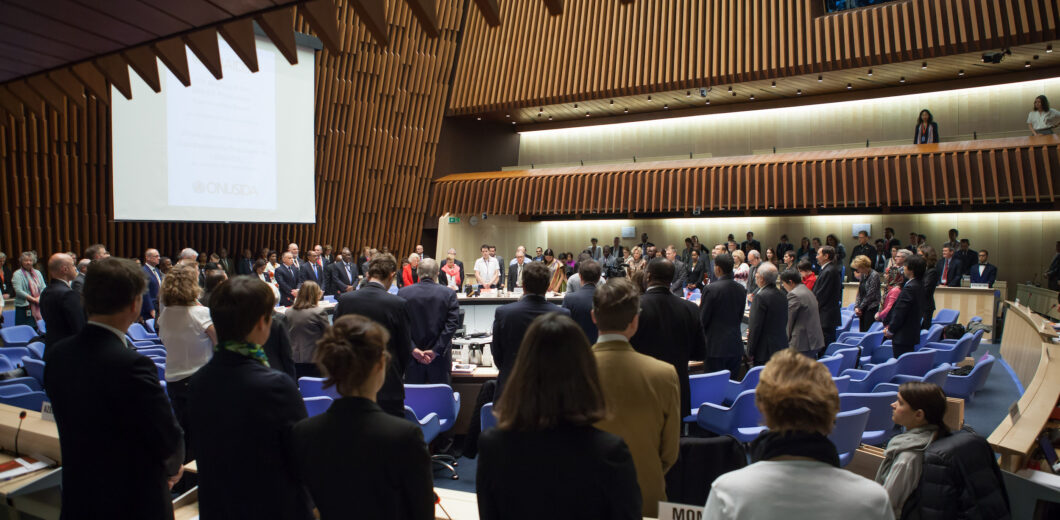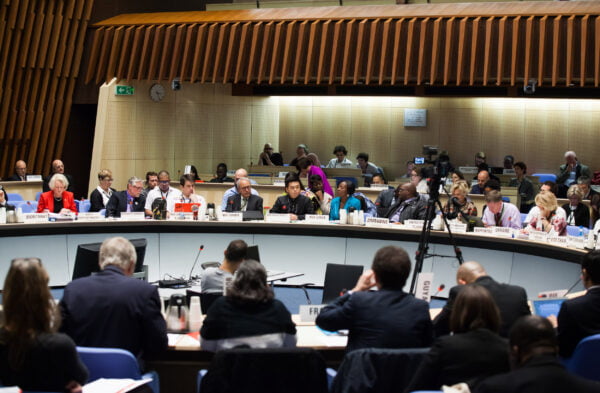Mr. Chair, we thank you for your leadership. Executive Director Sidibe, we thank you for your insistence on immediate action in the face of the suffering created by HIV.
As the NGO Delegation, we strongly support the current strategic direction of UNAIDS and the targets set. We cannot accept that people are left behind any longer.
As we scale up our hopes to end the epidemic, we need to be honest. The strategy is inspiring. But money is running out. We have fast track language but not fast track money. We need to fully fund the UNAIDS strategy for 2016 to 2021. We need to fully fund the Global Fund replenishment. We need to fully fund civil society work to address HIV.
In every country, including my own, we see people – many young – continue to die of AIDS because they fear mistreatment and violence, because medications are too costly, or because they lack basic sexual education.
It is time for AIDS to stop stealing our loved ones. We have evidence. We need action to end discrimination and violence against women, girls, and LGBTQI people; and ensure quality prevention, testing, treatment, and support.
We say that EVERYONE must have access to respectful, affordable, quality prevention, treatment, care and support, irrelevant of where they are or who they are.
We must learn from and support communities to conduct critical advocacy and support work.
In Zimbabwe, with little funding, Widows Fountain of Life, run by Angeline Chiwetani, provides psychosocial support for widows, especially those who recently buried their husbands and then received an HIV diagnosis. Communities need funding.
The Hungarian Blue Point Foundation is currently blocked from continuing their highly effective needle exchange program for people who use drugs by their local government. This takes place despite Constitutional protection of these services as part of the national civil right to health. Communities need protective legal environments and funding.
We have fast language on communities. We need fast funding for communities.
We ask the Member States, do not make this PCB one in which we leave with nothing more than fast language, its our collective responsibility. The time is now that we must fight again as we have done before. We must stand strongly against mistreatment of vulnerable people and we must end AIDS.

